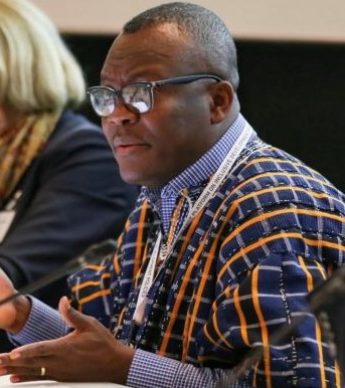See the French version here: https://assodesire.com/2017/01/19/gambie-la-prestation-de-serment-du-president-elu-est-elle-legale/
The new Gambian President Adama Barrow has just been sworn-in in an extraordinary circumstances. The ceremony took place at the Embassy of the Gambia in Senegal because of the refusal of the outgoing President Yahya Jammeh to leave power. Is it a legal act? I am sharing my personal opinions on the issue:
The legitimacy of the President comes essentially from his election by the people of Gambia who hold the national sovereignty exercised through elections. The majority of the Gambians have thus entrusted this sovereignty to the President by the elections that took place in December 2016.
The swearing in (or the taking of oath) is a statutory declaration of the President-Elect made before a judge or an oath officer during a public ceremony to formalize the President’s installation. What is important in the swearing in is the formula, provided for by law and read by the President. The oath is a promise announced in a ceremonious and public manner, insisting on the sacred and unswerving character of the words spoken with the affirmation of a divine bearing. It has to be done in front of a judge, a lawyer or a commissioner of oath. The place of the oath therefore has no bearing on its legal value. In fact, the constitution of the Gambia remains silent on the place where the taking of the oath should happen. It only referred to a “prescribed oath”.
Why was it important that President-elect Adama Barrow takes an oath on the 19th January?
If President-elect Barrow has not taken the oath on this date there would be a power vacuum in the Gambia and anything could happen…including the army re-taking power. In addition, now that he has taken the oath, he becomes the legitimate president of Gambia and can now request a military intervention of ECOWAS to re-establish order in the Gambia including kicking the outgoing president out by all means without having the approval of the UN Security Council.
Is an embassy part of the national territory?
Contrary to popular belief, the embassy is not part of the national territory of the sending state. The Vienna Convention of 1961 on Diplomatic Relations does not provide for the extraterritoriality of embassies. However the mission is normally considered as a property and symbol of the state and the authorities of the sending state have absolute control over what is happening inside the embassy. Its inviolability is thus guaranteed by the Convention. For example, agents of the host country are prohibited from entering in, except with the consent of the head of the mission, and must “take all appropriate measures to prevent invasion of the premises of the mission”. Some countries even consider that their own national law and regulations apply inside their embassies.
In conclusion, the swearing in of President elect Adama Barrow took place on Senegal’s territory but it retains all its legal value.
Read my anticipated scenarios for Gambia’s next? here: https://assodesire.com/2017/01/17/political-crisis-in-the-gambia-scenarios-of-the-next-days/

One thought on “Gambia: Is the Swearing in of the President-Elect Legal?”